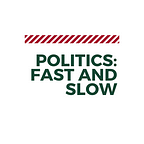Unfair Voting Systems Disadvantage The Poorest
And it’s time for reform.
Electoral systems underpin the quality and freedom of our democracy. They determine the representation of the population for the duration of the term of office, and which views are represented most strongly translates into the direction of policy for that term — having long-term and far-reaching effects.
Different systems are used in different countries, to elect representatives in different types of elections: gubernatorial, presidential, parliamentary — and so on.
These systems have many advantages and disadvantages: some are fairer than others, some exclude extreme parties more than others, and some hold politicians to account better than others.
And by far the most important effect of an electoral system is how it serves to engage voters, represent their views, and address their concerns. Far too many systems are weak in their representation of the population and their engagement capacity.
Let’s start with the electoral college.
Possibly the most pointless institution and feature of an electoral system ever created, the electoral college serves politics in only one way: the large-scale disenfranchisement of the poorest and most disadvantaged in society.
